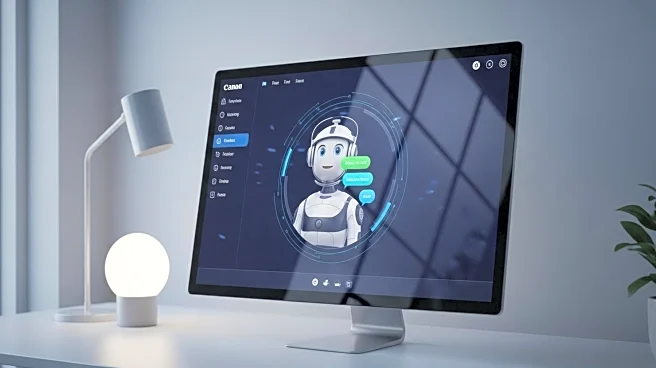What is the story about?
What's Happening?
Allen Frances, MD, has provided insights into the role of AI chatbots in the field of psychiatry. These chatbots are increasingly being integrated into clinical settings, offering new ways for clinicians to interact with patients. The technology is designed to assist in patient communication, potentially improving access to mental health resources. However, the integration of AI chatbots also raises questions about the implications for clinical practice and the need for clinicians to adapt to these technological advancements.
Why It's Important?
The introduction of AI chatbots in psychiatry represents a significant shift in how mental health services can be delivered. This technology could enhance patient engagement and provide support outside traditional clinical hours, potentially reducing the burden on healthcare systems. However, it also necessitates that clinicians develop new skills to effectively incorporate these tools into their practice. The broader impact on patient care, data privacy, and the clinician-patient relationship remains a critical area of consideration.
What's Next?
As AI chatbots become more prevalent, there will likely be increased focus on developing guidelines and best practices for their use in clinical settings. Clinicians may need to undergo training to effectively integrate these tools into their practice. Additionally, ongoing research will be essential to evaluate the efficacy and ethical implications of AI chatbots in mental health care.
Beyond the Headlines
The use of AI chatbots in psychiatry also raises ethical questions about data security and patient confidentiality. As these technologies evolve, there will be a need for robust regulatory frameworks to ensure that patient data is protected and that the use of AI in healthcare adheres to ethical standards.















